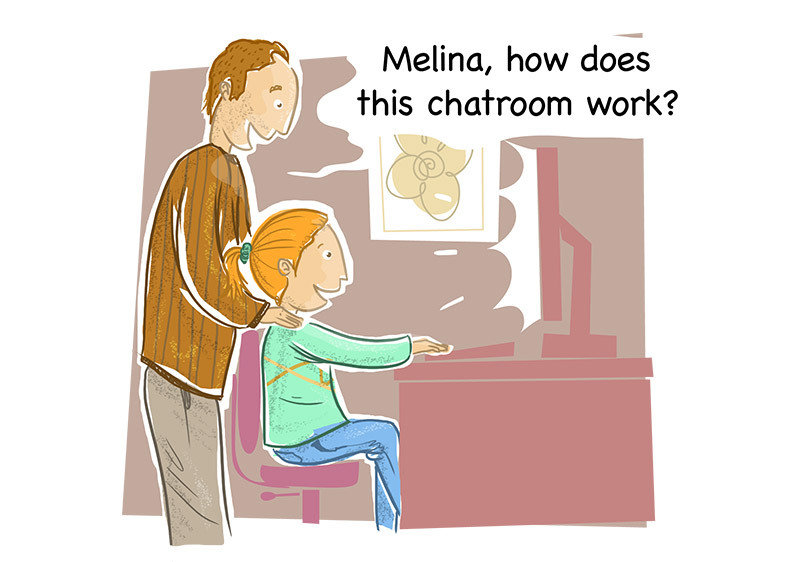How to start a conversation with teenagers
Living Democracy » Parents » TEENAGERS (13 – 18 years) » Using Media » How to start a conversation with teenagers
How to start a conversation with teenagers
One possible form of communication with teenagers is engaging them in discussions of topics that interest them. Instead of venting your displeasure about your son’s or daughter’s use of electronic devices, take an interest and ask for the purpose of their using the media.
- For what purpose do you need your laptop, tablet/ smartphone?
- What kinds of communication channels do you use?
- Which apps do you use and for what?
- Can you show me how pictures/texts/videos are being disseminated and altered in different networks?
Engage your teenager in a discussion about individual media use. For that purpose, you and your child may decide to maintain a media diary1 for an agreed-upon period of time.
- Compare your own use of media with that of your teenagers’. Who uses which media and for what purpose?
- What importance do these media have for both parties?
- Who is bothered or disturbed by what? Why?
- What kinds of wishes do you and your children have?
- Agree to a mutually acceptable media fast or holiday.
By keeping a media diary, you can simultaneously strengthen your teenage children‘s self-regulation: Do you feel that I am wasting my time, or does my use of media further me personally? After all, the main goal of media education consists in my children’s learning to adopt a deliberate and conscious utilization of the media.
Utilize the media together, thereby engaging your sons and daughters in conversation. You may wish to consider the following possibilities:
- Examine closely one of your favorite TV shows, soap operas, or an online game: how do the creators work? Which objectives do the programs or games pursue? How are the actors or contestants presented? How are the viewers to be influenced? Does it occur openly or covertly? How real are the “reality shows“?
- Together, utilize apps from the smartphone (e.g. for digital image processing, making videos). Creating something meaningful and working with “sophisticated“ games and apps leads to a conscious mode of dealing with smartphones and media in general (e.g. creating an e-book, photo novel). Another positive effect of the collaboration between parent and children in creating a digital product is the resulting enhanced critical view of media contents. If I know from personal experience how a film is made, and pictures are altered, etc., I have a different view of what I see on the internet.
- Searching for traces on the net: together with your teenagers, look for information about yourselves or acquaintances and relatives. Discuss what you found and what this information might mean for the individuals in question. Are privacy rights violated? How can I protect my personal privacy? How would I like to present myself on the internet? What kinds of information about myself should never ever get onto the internet?

